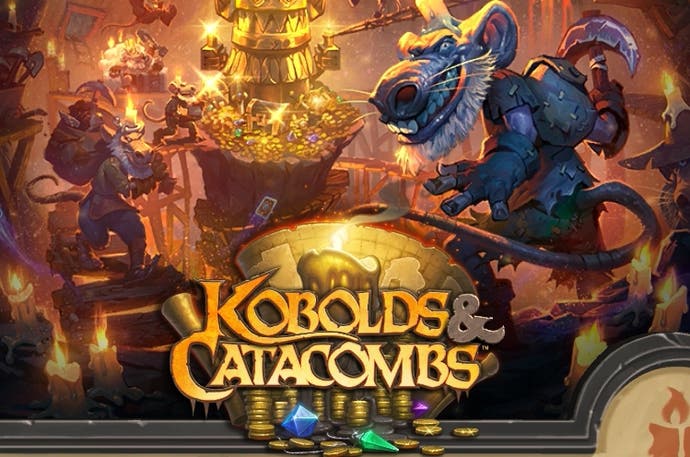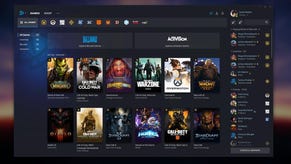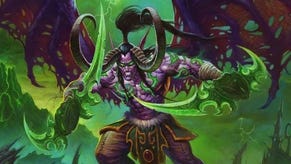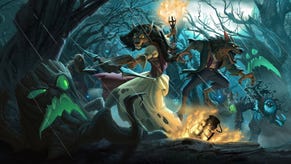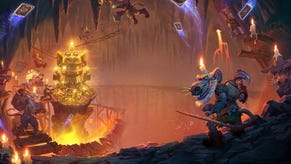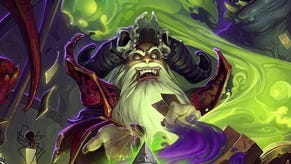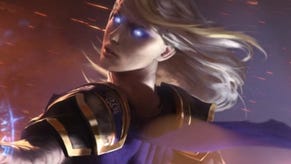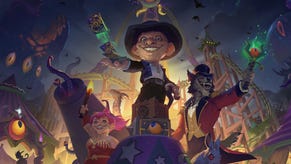Hearthstone's Dungeon Run wants to school you as it schools you
In Kobold blood.
I suspect that if you grew up with Indiana Jones and the Goonies, with Tintin and Fighting Fantasy paperbacks, the merest combination of words like "Dungeon Run" is likely to trigger a Pavlovian response. Luckily, Blizzard's take on Dungeon Run, employed as the wriggly, twitching spine of Hearthstone's recent Kobolds and Catacombs expansion, has much more going for it than the simple pulp poetry of its name.
Dungeon Run is a roguelike. It's a roguelike, right, that lives inside Hearthstone, which last time I checked was a collectible card battler. God, it is ingenious: a boss-rush composed of eight horrible jerks to tackle, each of them drawn randomly from a pool of 48. Defeat a boss and you win treasure, in the form of groups of themed cards to add to your hand. Die, and the whole thing wipes: you begin your next run back at the very start, facing off against a giant rat and with the most basic and unadorned of decks once again.
It's not hard to see why this works. Hearthstone is brilliant at building themed decks that have a sense of character to them. To put it another way, Blizzard knows how to slap the right physical presence - maddening, fire-handed - on Lyris, The Wild Mage, whose Hero Power sees her adding Arcane Missile to a deck that is otherwise pretty much composed of Flamewalkers. And Blizzard also knows that in a game about collecting cards, there's no better reward for vanquishing a nightmare like Lyris than, well, collecting a bunch of extra cards, cards you can then use as you try to take on whoever comes next.
What's more interesting, I think, is why Dungeon Run has been dropped into the game now: what it's doing, as much as how it's doing it.
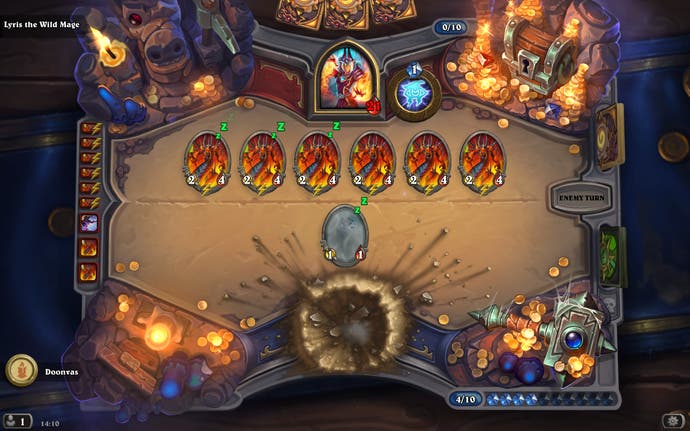
I heard about Dungeon Run from John Bedford, who runs our sister site Metabomb. It sounded amazing - a roguelike that lives inside Hearthstone! - but it also sounded like the kind of thing I would never be able to get my head around. I loved Hearthstone, but then I dropped out a while back, and in the time I was away what feels like hundreds and hundreds of new cards came into the game and spun the dial on the meta - cards that I don't own, and that which I wouldn't be able to make effective use of even if I did.
Dungeon Run gets around the first point quite nimbly, of course: here's a game mode about collecting new cards, but only holding onto them for the length of your boss-run. What I didn't initially foresee is that it gets around the second point too. Dungeon Run teaches you how to use cards you may not have seen if you'd dropped out of the game. And it does this because it's basically a tutorial for lapsed players. And to be a tutorial, it's decided to be a roguelike, and that's brilliant.
I am a different person in roguelikes. I try things. I take risks. I don't hold things back for fear of wasting them, I cash them in lavishly because life is short, a restart is always near at hand, and the whole point of a roguelike is that the odds are extravagantly stacked against me so I might as well have fun in as dramatic a manner as possible.
It turns out that all these qualities are ideal traits to have when you're trying to learn things. Here are all these complex things. The best way to understand how they all work is not actually to think about them, to read the tool-tips and take things extra slow. It's to throw yourself in there, make mistakes, fail spectacularly and then come back instantly for another go. It's to test the boundaries of a system. It's to understand what your powers are good for, and how far they go. And it's to try everything until you've learned how it works by doing it and doing it and doing it.
How different this is from the traditional - and traditionally horrible - video game tutorial, many of which turn off fail states and hem you in so you can't experiment. For years it's always seemed like the mark of a good game if you can die in the tutorial, because it means that the designers trust you enough - and trust the robustness of their game - to let you mess around and screw things up. Now I'm wondering if many games - games that aren't anything like roguelikes - might benefit from turning just a bit roguelike-ish when they're teaching you the ropes.
